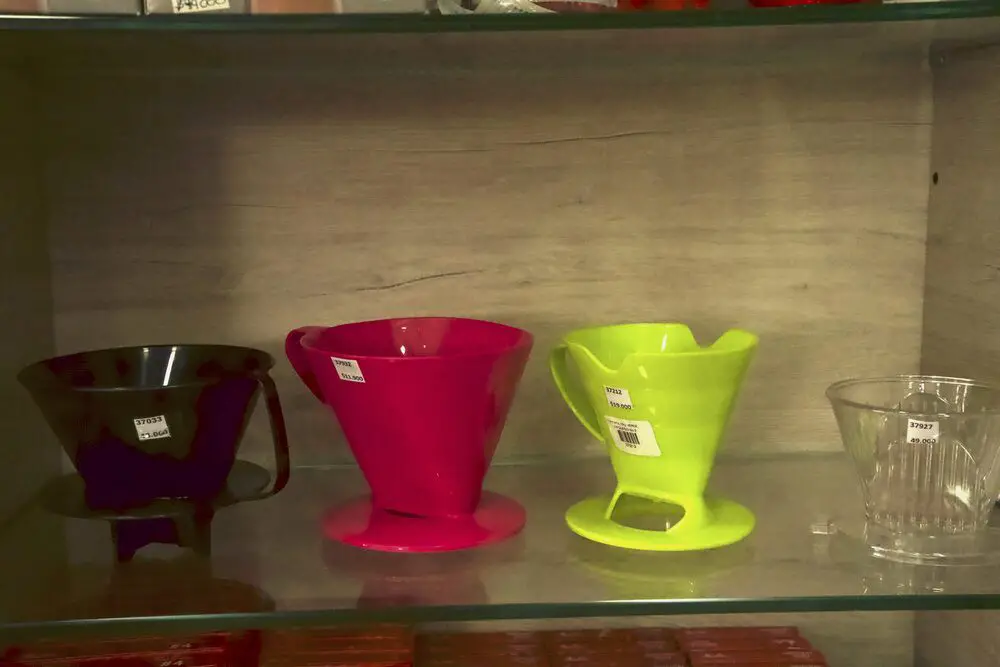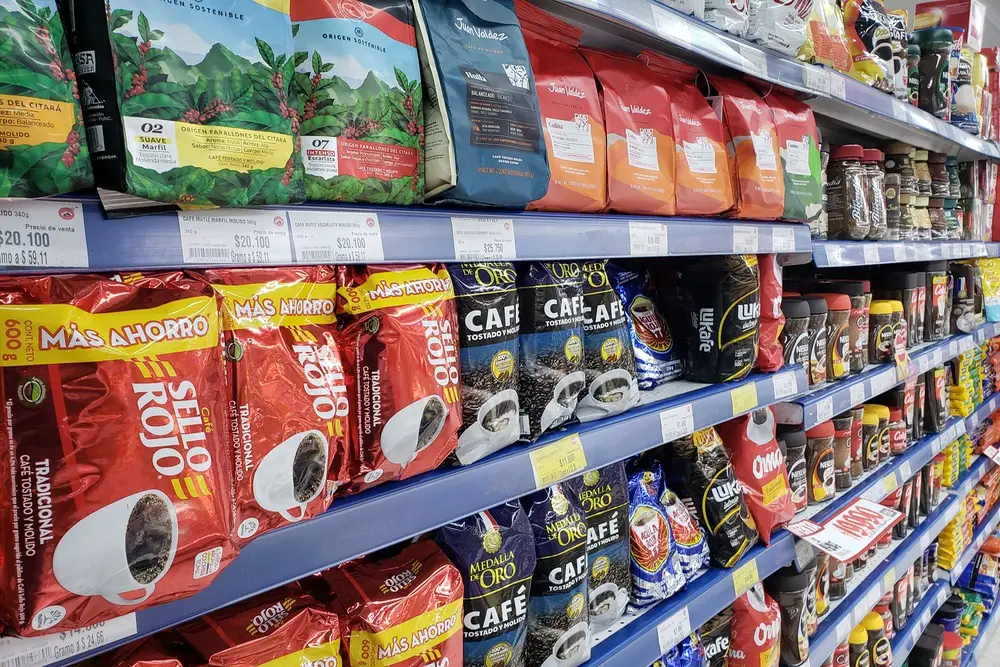Coffee consumption is increasing worldwide. Although single brew systems like Keurig are very popular, 41% of Americans still use a drip coffee maker.
This means that many paper coffee filters are also thrown away every day.
Have you ever wondered if the coffee industry pollutes the environment?
Table of Contents
About coffee filters
The filter allows the liquid coffee to flow through, but holds back the ground coffee.
These filters are typically made of threads about 20 microns wide that allow smaller particles of about 10 to 15 microns to pass through.
The filter paper removes oily compounds called diterpenes; these organic compounds found in unfiltered coffee have anti-inflammatory properties.
Coffee filters are made from filter paper of around 100 g/m2. The raw material for filter paper (cellulose) are long, coarse fibers that usually come from fast-growing trees. In the coffee brewing industry, companies make bleached and unbleached filters, which affects what type of filter is used to prepare the brew.
Coffee filter recycling ideas
Here is a list of different ways you can give your coffee filters a second chance.
Use the filters one more time
A little-known fact about coffee filters is that you can use them multiple times before throwing them away. All you have to do is throw the coffee grounds on the compost heap, dry the filter and reuse it for the next coffee brew.
Coffee filter vs. weed
Coffee filters offer an easy and inexpensive way to control weed growth between garden plants. Use a filter with coffee grounds and you have an excellent fertilizer.
Coffee contains many important nutrients that promote plant growth.
You can collect four to five cups of soil and use them for three to four houseplants. The amount of coffee grounds depends on the size of the plant.
Coffee filter for straining cooking oil
A coffee filter can be used as a cooking oil filter. This is an excellent way of filtering and removing impurities from the oil, making it ideal for recycling.
Place the filter on the container, turn it upside down and strain the liquid into another container. The oil in the new container contains clean oil that can be used again to cook a delicious meal.
Coffee filter for cleaning glass
Stains on glass can be unsightly. Using a regular cleaning brush may scratch the surface of the glass.
Coffee filters, on the other hand, are good for cleaning glass surfaces because they leave no bumps or residue.
Coffee filter as a protective layer
Coffee filters are a cost-effective alternative for protecting valuables as they serve as a non-abrasive layer of protection.
You can put them between your valuables, such as B. jewelry, to keep them safe and organized.
Coffee filters vs. bad smells
A few teaspoons of baking soda and a coffee filter are enough to get a perfect deodorant! Put the baking soda in the coffee filter and tighten it with a rubber band or string. You can put the sachets in smelly shoes, drawers or refrigerators.
Add a few drops of essential oil and you can diffuse your favorite scent for a long time.
Clean stainless steel with a coffee filter
Because coffee filters leave no lint or residue, they make an excellent cleaning tool. One of our favorite uses of coffee leaves in our cleaning range is to clean or polish stainless steel for a perfect, streak-free finish.
Dust screens
Whether for computer, television or mobile phone screens – coffee filters are more suitable than certain cleaning pads due to their fine fabric.
One of the best eyeglass cleaners are coffee filters
Next time you clean your glasses, consider using coffee filters instead of paper towels.
High-quality coffee filters are made from 100% pure paper, so you can easily use them to clean your glasses.
Coffee filter for polishing
Coffee filters are absorbent and very durable and are great for removing nail polish or applying polish to shoes or boots.
Coffee filter against rust
Extend the life of your premium cast iron cookware.
Place the coffee filter in cast iron pans when not in use. The filter absorbs moisture and prevents rust.
Can coffee filters be composted?
Yes, coffee filters are fully compostable, but we are talking about paper coffee filters. If your filter is made of a different material, e.g. B. Linen, this may not be the case. Also, coffee filters are often treated with chemicals (like bleach).
Therefore, choose a brown filter to get an organic compost. However, the chemical quality used in these filters is very low. They have no significant health effects. In addition, adding a coffee filter is not only biodegradable, but also suitable for composting.
These materials are said to contain carbon, which has been shown to contribute to a balanced nitrogen content. You can also add coffee grounds as they are high in nitrogen which can improve the quality of your compost.
Coffee filters have been found to be an excellent tool for controlling odor and improving oxygen levels. The result is a healthier compost pile that’s also easier to maintain.
Step-by-step guide to composting used coffee filters
Do not empty out the coffee grounds
When we talk about compostable coffee filters, we mean using coffee grounds. Used coffee grounds are an excellent fertilizer that provides plants with many important nutrients and promotes plant growth. So the first step is to store the coffee filter and coffee grounds.
Tear off the filter
If you want to compost everything together, it will take longer for the filter to decompose. Therefore, it is better to disassemble the filter into smaller parts to speed up the process.
Since the filter is already wet, it’s easier to tear everything into smaller pieces. If you have just removed the filter from the coffee maker, be sure to wear gloves to protect your hands from burns.
Don’t fill everything in at once
You cannot compost with coffee filters alone. Organic matter and plants must be mixed in a balanced ratio to create an effective compost. Therefore, you can not only use coffee grounds and a filter to make compost.
Also, you cannot add these ingredients in bulk, as it will slow down the whole process. Replace each coffee filter after each use.
Mix the filter with organic material
In order to properly break down the filter, everything needs to be damp, especially used coffee grounds. If you add dry coffee beans, the process will take longer. If you feel the mixture is too dry, add a little water. Mix well.



